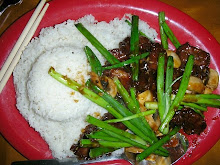“Unit 212.”
“212. Go ahead.”
Ken Stackhouse, senior sociology major
at The University of Texas at El Paso, did his best to follow the terse
exchange of information between Sergeant Molina and his dispatcher, but it was
confusing. Police communications were not chatty.
“You
follow that, kid?” Molina asked.
“Maybe. They’re asking you to back up
another unit somewhere, right?”
“Right: a fight at a sports bar just off
North Mesa, about a mile from here.”
“Did one of those codes mean lights but
no siren?”
“Right. And that means what?”
“I guess it means it’s over. They’re
finishing up.”
“Yeah. Coupla injuries, not serious.
EMTs are there.”
“I missed that part.”
“We’ll check around, make sure the area’s
clear and then go inside.”
“Will they be expecting you?”
“Yeah. Did you hear someone say ‘240?’”
“Uh, I think so….”
“That’s unit 240 onsite, Amos and
Russell, saying they’d heard we were backing them up.”
“Ah.”
In four evenings patrolling with
Sergeant Molina, Stackhouse had yet to see any real action, but that was fine
with him. His major emphasis was community relations, not law enforcement. He
didn’t need to learn the arcane professional lingo the officers used. Their
relations with the public were more to the point.
The sergeant turned the cruiser onto a
four-lane street where, several blocks ahead, the flashing lights of an
ambulance and a police cruiser signaled their destination. Molina drove past
slowly, checking both sides of the avenue, turned left, and repeated the
process all the way around the block. Except for the emergency vehicles
everything looked quiet. He pulled in alongside the other cruiser, notified the
dispatcher, and unfastened his seatbelt.
“I’m going inside,” he said. “I suggest
you stand by out here until I get back.”
“OK. Sure.”
He’d been riding awhile so he got out
and stretched. Sporty’s Bar and Grill was in the middle of a block of mid-level
businesses. Some were open (Subway, Walgreens), others closed. Perhaps fifty
vehicles were parked nearby. A girl was leaning against a cement planter full
of ornamental bushes to the left of the bar. He walked over.
“Hi,” he said.
“Hi,” she replied.
“Whatcha doing?”
“Waiting for my brother.”
“Why?”
From her glance at him she clearly knew
he wasn’t a police officer. He was in street clothes.
“I’m a college student,” he explained.
“I’m riding with the police as an observer.”
She nodded but didn’t bother to answer
his question. She was cute: petite, long light brown hair in a ponytail, tight
jeans and a frilly green blouse with a splash of colorful Mexican embroidery down
the front.
“Did you see any of what went on here
earlier?” he said, tilting his head towards the sports bar.
“Uh-huh,” she nodded.
The doors of the bar opened. Two EMTs
emerged pushing a gurney. The head of the man on the gurney was wrapped in a
white bandage. Next came two walking wounded with white bandages on their hands
that made them look like cartoon characters. A police officer brought up the
rear. The officer watched them all load into the ambulance, which rolled away
under flashing lights. Sergeant Molina and a third officer emerged and the
three conferred briefly. Amos and Russell got in their cruiser and followed the
ambulance.
“This young woman said she saw what
happened,” he said to Molina.
The sergeant walked to her.
“Were you inside or outside, miss?” he
asked.
“Inside,” she said. “They started
arguing about soccer teams,” she said, “my date and his friend, and three other
guys. They got angry, started pushing each other, and a fight broke out. I came
out here and called my brother to come get me,” she said. “My date was an
idiot. They were all idiots.”
“Have you got some ID?” the sergeant asked.
She nodded. She pulled a driver’s license out of her
pocket and handed it to him. He studied it briefly.
“Happy birthday, Ms. Méndez,” he said. “Have
you had anything to drink?”
“A licuado. Strawberry.”
“Nothing alcoholic? To celebrate your
birthday?”
“No, sir. My date celebrated for both of
us. The dummy.”
“Can you add any details to what you’ve
told us?”
“I saw the third guy drive off in a
yellow sports car. It might have been a Corvette; I don’t know much about
sports cars. He had tattoos all around his neck. I heard him called ‘Feo.’”
“’Feo.’ So, was he ugly?”
“No. He wasn’t bad looking at all.”
“Irony. Figures. What sort of tattoos?”
“They were vertical lines or bars, kind
of, and I guess it was a scorpion, below his right ear.”
Molina was jotting notes in a small
notebook.
“Did you happen to notice the license
number?”
“No, sir. I’m sorry. I didn’t. He was in
a hurry.”
Molina studied the driver’s license
again. He made another note.
“OK, Ms. Méndez. Here’s your ID and my
cop card. If you think of anything else, please call us. We might get back in
touch, all right?”
“Yes, sir. Of course.”
“When do you expect your brother? Soon?”
She looked at her watch.
“Ten minutes. I hope.”
“OK. We’re going to check inside again.
If you’re still here when we come out, we can drop you somewhere or call you a
cab if you need.”
“I’ll be fine. Thanks.”
Stackhouse followed Molina into the bar.
“Kid had manners,” Molina said.
“Yeah, but she was pissed,” Stackhouse
added.
There were still customers in the bar,
but not in the vicinity of the pool tables, where there were a tipped over
table and chairs, spilled drinks, broken glasses, and two halves of a pool cue.
A bus boy was pushing the wreckage into a pile with a broom.
The manager was behind the bar on the
telephone, apparently with the bar owner. He hung up.
“Still don’t want to press charges?”
Molina asked.
“Not worth the insurance hassle,” he
said. “Something like this happens every month or so. Goddam soccer. It’s the
worst.”
“Every month?” Stackhouse asked.
“More or less. Depends on what sport’s
in playoffs. This bust-up was different, though. I told the other officers but
they thought I was joking.”
“Joking about what?” asked Molina.
“The fight.”
“What about the fight?”
“It’s like this: soccer fanatics plus
alcohol. A fight starts. We break it up. Sometimes we call you good folks. That’s
the pattern. What isn’t the pattern is that a girl ends the fight.”
Molina perked up.
“What girl?”
“Young woman with the blond kid. One of
the Hispanics coldcocked him and she tore into those guys big time.”
“Describe her,” Molina asked, his voice
level.
“Little thing. Nice looking. Ponytail, jeans,
green top. She blitzed the three of them in about fifteen seconds.”
Molina glanced at Stackhouse.
“Yeah? How?”
“I wish I knew. I was behind the bar. Soon
as I saw them start pushing each other and cussing and the one guy throw a
punch, I headed over to break it up. By the time I got there two of the guys
had broken fingers on each hand and the third was limping out the door fast as
he could. The blond kid was out cold.”
“The girl did that? Are you sure?”
“Well, yeah. I mean I didn’t see it blow
for blow, but…hey, have you ever seen a cat go crazy, like on YouTube? I mean, they
can go nuts sometimes, right? One tears into you and in five seconds you need
twenty band aids. That was what she was like. Too fast to follow…but then you
see the results. Know what I mean?”
“You believe that?” Stackhouse asked
Molina as they left the bar. The girl was gone. Molina shrugged.
“I dunno. Maybe. The EMTs said each guy
had broken fingers. The third perp would have limped away for only one reason:
pain you know where. A drunk man wouldn’t have fought like that—too quick, too
efficient. He would want to dominate his opponents, put them on the floor, lord
it over them. Besides, did you notice that girl? Her blouse was pulled partway
out of her jeans. Messy. Girls on dates want ‘em just right.”
“Man! Have you ever seen anything like
that before?”
“Only in the movies.”

























